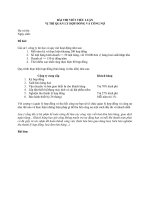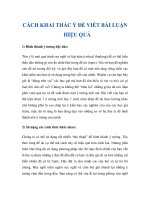Cách viết bài luận: Personal Statement để xin học bổng và dùng làm admission essay du học TopAdmit personal statement principles (1)
Bạn đang xem bản rút gọn của tài liệu. Xem và tải ngay bản đầy đủ của tài liệu tại đây (2 MB, 30 trang )
����������������������������������������������������������������������������������������������������������������������������������������������������������������������������������������������������������������������������������������������������������������������������������������������������������������������������������������������������������������������������������������������������������������������������������������������������������������������������������������������������������������������������������������������������������������������������������������������������������������������������������������������������������������������������������������������������������������������������������������������������������������������������������������������������������������������������������������������������������������������������������������������������������������������������������������������������������������������������������������������������������������������������������������������������������������������������������������������������������������������������������������������������������������������������������������������������������������������������������������������������������������������������������������������������������������������������������������������������������������������������������������������������������������������������������������������������������������������������������������������������������������������������������������������������������������������������������������������������������������������������������������������������������������������������������������������������������������������������������������������������������������������������������������������������������������������������������������������������������������������������������������������������������������������������������������������������������������������������������������������������������������������������������������������������������������������������������������������������������������������������������������������������������������������������������������������������������������������������������������������������������������������������������������������������������������������������������������������������������������������������������������������������������������������������������������������������������������������������������������������������������������������������������������������������������������������������������������������������������������������������������������������������������������������������������������������������������������������������������������������������������������������������������������������������������������������������������������������������������������������������������������������������������������������������������������������������������������������������������������������������������������������������������������������������������������������������������������������������������������������������������������������������������������������������������������������������������������������������������������������������������������������������������������������������������������������������������������������������������������������������������������������������������������������������������������������������������������������������������������������������������������������������������������������������������������������������������������������������������������������������������������������������������������������������������������������������������������������������������������������������������������������������������������������������������������������������������������������������������������������������������������������������������������������������������������������������������������������������������������������������������������������������������������������������������������������������������������������������������������������������������������������������������������������������������������������������������������������������������������������������������������have great raw materials
for addressing each of these questions.
The main thing I have done is to reorganize a bit to
highlight these areas . . .
. . . while also putting it into a narrative form that
moves forward from past to present to future.
MAKE IT EASY TO SCAN
Make sure your main points stand out at the top of each
paragraph
And try to put them in a logical sequence
To test this, try removing everything except the topic sentence
of each paragraph (and the last sentence of your final
paragraph, where you should have a firm conclusion if
possible).
In the following slides, take a look at the “before and after”
where I have main points highlighted
And after see how I’ve removed everything except topic
sentences and final concluding sentence to see how it reads.
GIVE A STRONG SUMMARY
PARAGRAPH AT THE TOP
- For many essays, it’s a good idea to try to at least give a
preview of the overall message within the first paragraph.
- This is a frequent approach used in American-style
essay writing: "Tell them what you're going to tell them.
Then, tell them. Then, tell them what you've told them.“
- On the other hand, don’t overdo it: leave them hungering
for more.
- In the following two slides, take a look at the “before
and after” of the first paragraph of the candidate’s essay.
AFTER
BEFORE
TRIM UNNECESSARY DETAILS
- Everything should go toward answering key questions in
the admissions committee’s mind, while also advancing the
narrative in an interesting way.
- I thus trimmed some of the extra details and summarized
instead.
- What's important is the final result, not so much the
detailed process that went into producing it. (Unless that
process is indeed the thing that’s useful to highlight.)
- In the following two slides, take a look at the “before and
after” of one particular such discussion.
AFTER
BEFORE
BE CAREFUL WITH “NAME DROPPING”
- If you’re going to “name drop,” make sure you do so in an
appropriate way that indicates you are familiar with the person you
are citing and understand his or her significance to your goals.
- In this case, the candidate said his ambition of “becoming a
marketing specialist as prominent as, if not more as Don Schultz.”
- Now, the admissions committee would be well aware that Dr.
Schultz is Professor Emeritus of Northwestern University, a widely
renowned author who is lauded as “the father of integrated
marketing.”
- It would be better for the candidate to express admiration for Dr.
Schultz and indicate why he provides inspiration. Simply to drop his
name doesn’t mean much; and to claim that the candidate could
become more prominent than the professor comes across as
“boastful” at best and possibly a bit ignorant at worst.
Before:
After:
WRITING TIPS
Keep a journal
“Brainstorm”
Use the rubber duck approach
Get a second pair of eyes; “explain
it to me like I’m a five year old.”
Get professional help!
NOW LET’S TALK ABOUT
THIS, SHALL WE?
Briefly introduce yourself, your interests and
motivations
Summarize your undergraduate and previous
graduate career
Tell about your work experience
Tell how your recent and current activities are
relevant to your upcoming graduate studies
Tell us what are your academic interests
CONTACT
11F, NO. 178, Sec.1, Keelung Rd., Taipei,
Taiwan
+1 613 981 1809 (Worldwide)
+886-2-2764-6894 (Taipei)
topadmit_jason
www.topadmit.com









